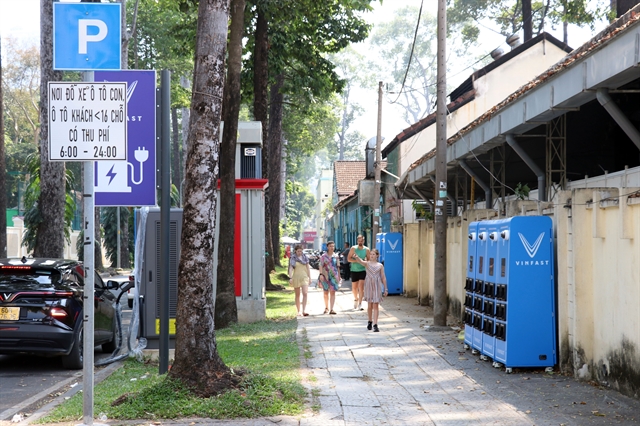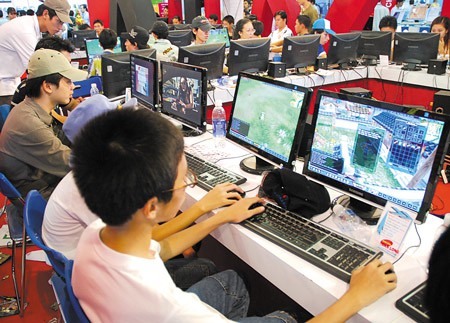 Society
Society

All stakeholders must join hands in creating a safe internet system that children can use effectively for their education and research purposes, a senior official said yesterday.
 |
| All stakeholders must join hands in creating a safe internet system that children can use effectively for their education and research purposes, a senior official said yesterday.– Photo giadinh.net.vn |
HÀ NỘI – All stakeholders must join hands in creating a safe internet system that children can use effectively for their education and research purposes, a senior official said yesterday.
Speaking at a ceremony held in Hà Nội to release the United Nations Children’s Fund’s annual flagship report, Deputy Minister of Labour Invalids and Social Affairs Đào Hồng Lan also said that adults should provide children the skills to join the internet system safely and to protect their personal information.
“Keeping children safe should be the central issue in setting policies related to digital technology,” she said.
The “State of the World’s Children 2017: Children in a digital world” presents UNICEF’s first comprehensive look at the different ways in which digital technology affects children’s lives, identifying dangers as well as opportunities. It argues that governments and the private sector have not kept up with the pace of change, exposing children to new risks and harm and leaving millions of the most disadvantaged children behind.
Despite children’s massive online presence – 1 in 3 internet users worldwide is a child – very little is done to protect them from the perils of the digital world and to increase their access to safe online content, the report says.
It explores the benefits digital technology can offer the most disadvantaged children, including those growing up in poverty or affected by humanitarian emergencies.
These include increasing their access to information, building skills for the digital workplace, and giving them a platform to connect and communicate their views.
Since Việt Nam officially connected to the internet in 1997, the country has made impressive strides with 64 million Internet users as of June 2017, accounting for 67 per cent of the population.
Việt Nam is also listed among countries with the highest number of Internet users in Asia. Social media users are widespread with 64 million Facebook subscribers, with a large number of them children and young people.
An international opinion poll of more than 10,000 18-year-olds from 25 countries carried out by UNICEF in 2016, found that 72 per cent of Vietnamese youth aged 15-24 are connected to the internet.
Vietnamese 18-year-olds value online security and recognise the risks posed by the internet, with 74 per cent believing young people are in danger of online sexual abuse.
Worsening inequality
The report shows that millions of children are missing out. Around one-third of the world’s youth – 346 million – are not online, exacerbating inequities and reducing children’s ability to participate in an increasingly digital economy.
Youssouf Abdel-Jelil, UNICEF Representative in Việt Nam, said, “It’s undeniable that digital technology has already changed the youngest generation’s lives and life chances.
“If leveraged in the right way and universally accessible, digital technology can also be a game changer for children being left behind – children with disabilities, children from ethnic minorities and those living in poor and hard-to-reach areas – connecting them to a world of opportunity and providing them with the skills they need to succeed in a digital world.”
Only collective action – by governments, the private sector, children’s organizations, academia, families and children themselves – can help level the digital playing field and make the internet safer and more accessible for children, the UNICEF report says.
“Protecting children online doesn’t mean exerting more control over the internet. it’s about keeping children safe, and governments must work hand in hand with the private sector to keep up with the pace of change and protect children from the new risks and harms they are exposed to, especially for the most disadvantaged ones” said Youssouf Abdel-Jelil. – VNS